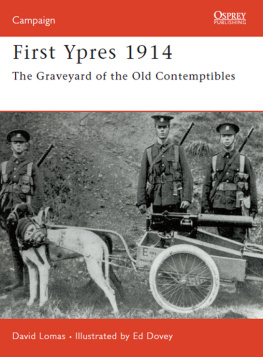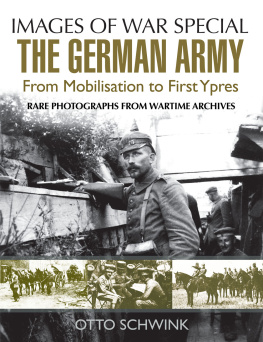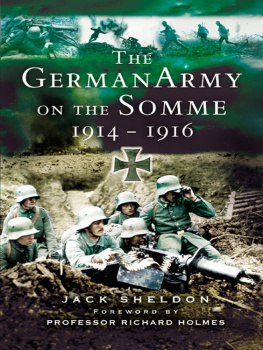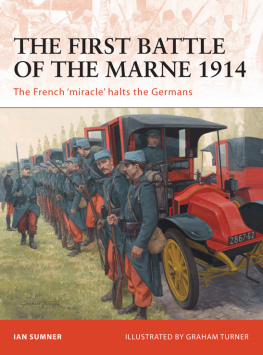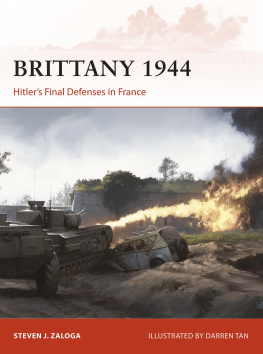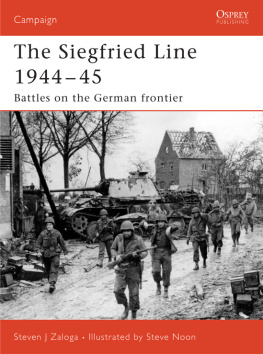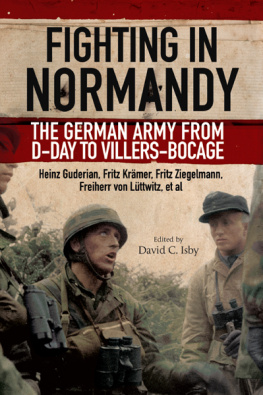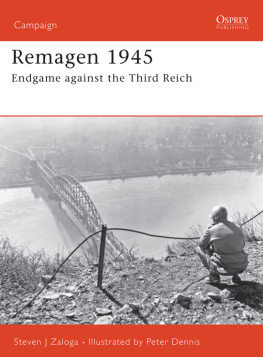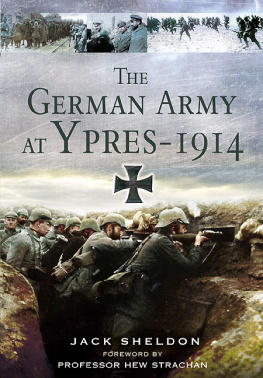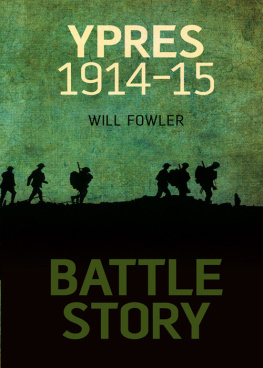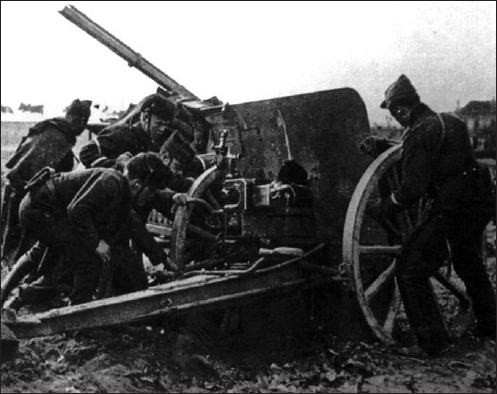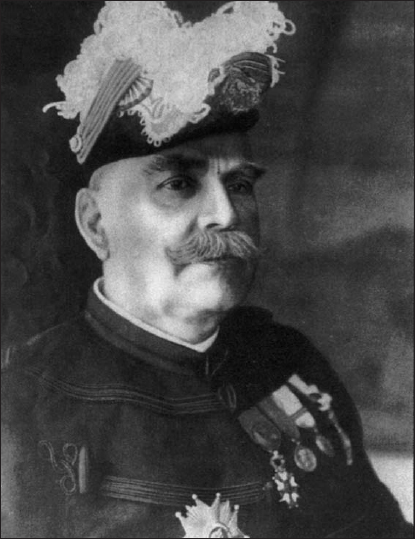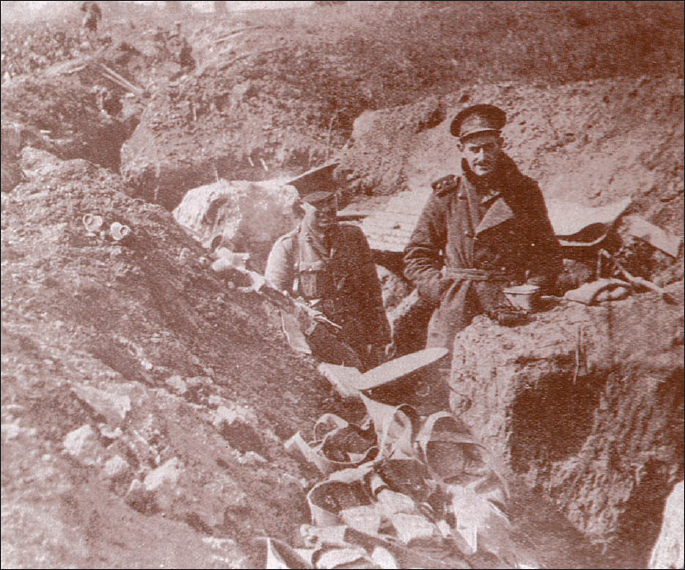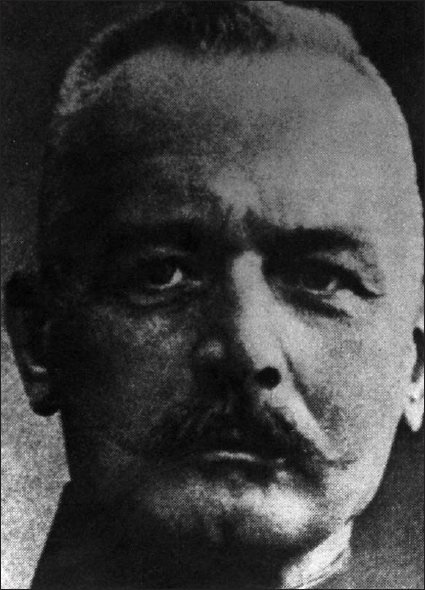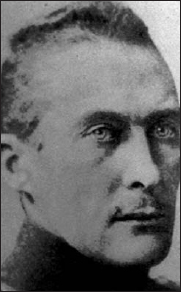Campaign 58
First Ypres 1914
The Graveyard of the Old Contemptibles
David Lomas Illustrated by Ed Dovey
Series editor Lee Johnson Consultant editor David G Chandler
CONTENTS
THE ROAD TO BATTLE
O n 29 September 1914, Sir John French, the British commander in chief, wrote to Marshal Joffre, his French counterpart, stating that he wished to regain my original position on the left flank of the French Armies.
The Great War was nearly two months old and the British Expeditionary Force had been in France for six weeks. It had fought at Mons and Le Cateau, retreated the long miles to Paris before the German advance was halted at the Marne, and finally supported the French offensive along the River Aisne.
The French Commander-in-Chief, Marshal Joffre, had a reputation for preserving an implacable calm, even under the most trying circumstances. His staff were under strict instructions never to disturb his nights rest and his meal times were similarly sacrosanct. Joffres imperturbability did much to allay some of the more extravagant fears to which his British counterpart, Sir John French, was prone.
For nearly three weeks, the British troops had stoically suffered a primitive and hazardous existence in waterlogged holes under constant shelling and small arms fire, interrupted by bouts of ferocious fighting. Seventy British infantry battalions, 15 cavalry regiments and 84 batteries of artillery grimly held 26 miles of front in miserable, soul-destroying conditions. The Marne and the Aisne had cost 18,000 casualties. In their six weeks of active service the BEF had lost over 36,000 men. There had been some reinforcements. The 4th Division, which had reached France in time to fight at Le Cateau, was now joined by the 6th Division to form III Corps. The BEF was still, however, a small force of just 163,897 all ranks.
Sir Johns proposal was the result of hard thinking; the battle of the Aisne had degenerated into stalemate. It was thus an ideal moment to concentrate all British forces in one area. Other British troops were already landing and operating in the north a hastily assembled force was at Antwerp and more were on the way, among them the 7th Infantry Division and the Indian Corps.
The BEF had stoically endured the primitive and muddy conditions of the Aisne battlefield, but there was a widespread feeling among officers and men that squatting in holes in churned-up mud was no way to fight a war. The move north to Flanders, where there was still a clear chance of fighting a war of movement was welcomed by everyone from the Commander-in-Chief down. These troops on the Aisne could equally well have been photographed in the Ypres salient a few weeks later.
It was logical that they should operate as one body. Further, supply lines would be much shorter close to the coast and the BEF could be reinforced quickly if necessary. Their presence would also bar the way to the Channel ports.
Sir John firmly believed that the BEF should not crouch in hastily-dug trenches under everlasting shell fire. It was an army trained for open warfare, and the flat plains of Flanders in the north still offered the chance to manoeuvre and fight a proper battle. Joffre, however, had reservations. He would have to find replacement troops to hold the muddy scrapes of trenches on the Aisne. The move would also divert precious railway wagons needed for sending French reinforcements to the north. Joffre still continued to suspect that Sir John would evacuate the BEF if things went badly and he regarded a location close to the Channel ports as a constant temptation for the British to retreat. He tactfully suggested that, although in broad agreement, the time was not quite right. The British commander disagreed and curtly informed Joffre that the first British troops would depart on 3 October.
Joffre accepted the inevitable. The timetable was agreed and the BEF went north. I Corps, the last to leave the battleground, reached Hazebrouck on 19 October.
THE OPPOSING COMMANDERS
THE GERMAN COMMANDERS
E rich von Falkenhayn, was Minister for War in August 1914; he succeeded von Moltke when the Schlieffen Plan failed but kept his ministerial post, which gave him immense power. Acutely perceptive, highly intelligent and ruthlessly determined, Falkenhayn was concerned with military ability, not the social standing of his subordinates. His lack of deference and decisive manner gave new urgency to the German High Command.
Erich von Falkenhayn, Chief of the German General Staff, was an immensely capable commander who demanded the utmost effort from his subordinates. A firm believer in swift and decisive action, he took little notice of excuses officers who failed to deliver were quickly relieved of their responsibilities.
Grand Duke Albrecht, commanding the German Fourth Army was not rated as a great commander by his contemporaries, his position owing more to his noble birth than innate ability.
Crown Prince Rupprecht of Bavaria commanded the Sixth Army in 1914. Born in 1869, he had spent his working life as a soldier. He was resolute, not prone to panic, and had considerable common sense. Although his career was not uninfluenced by his royal blood, he was an effective army commander.
Grand Duke Albrecht of Wrttemburgs status definitely helped his career. It was freely alleged that he was promoted out of harms way as quickly as possible. He commanded the Fourth Army, but it was generally assumed that it was effectively controlled by the Chief of Staff, Maj.Gen. Ilse.
THE ALLIED COMMANDERS
Field Marshal Sir John French, Commander-in-Chief of the British Expeditionary Force, went to France in 1914 with high hopes. Like very many others, he assumed that the war would be short and he was determined to win a share of glory from it. Irascible and prone to high blood pressure, he distrusted his French allies, despite having a holiday home in Normandy and a French son-in-law. Mercurial by temperament, he plunged from optimism to gloom in moments. He showed great skill in the South African War and was much admired as a fighting soldier. However, he bore grudges and imagined slights and insults where none were intended. He and Kitchener, the British Minister of War, distrusted each other. French further sensed a conspiracy on finding that three of his four Corps commanders had served under Kitchener in the Sudan. This was no recipe for a useful relationship.
Ferdinand Foch commanded the French Armies in the North; as such, he liaised closely with Sir John French and his supreme optimism was of great help when dealing with the temperamental British commander. Foch had great personal courage and believed passionately that the only hope of victory was in consistently attacking the enemy. His experiences in the first weeks of the war had, however, moderated his enthusiasm for unbridled offensives as he learned the difficulties of operating with tired and frightened troops. He was, therefore, always ready to adopt a defensive position, but never failed to insist that the enemy also felt terror and fatigue and could succumb to attack.

